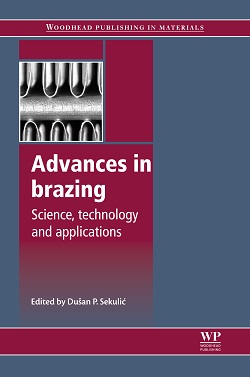Mar 11 2013
Brazing processes offer enhanced control, adaptability and cost-efficiency in the joining of materials. Unsurprisingly, this has lead to great interest and investment in the area. Drawing on important research in the field, Advances in brazing: Science, technology and applications from Woodhead Publishing provides a clear guide to the principles, materials, methods and key applications of brazing.

Part one introduces the fundamentals of brazing, including molten metal wetting processes, strength and margins of safety of brazed joints, and modeling of associated physical phenomena. Part two goes on to consider specific materials, such as super alloys, filler metals for high temperature brazing, diamonds and cubic boron nitride, and varied ceramics and intermetallics. The brazing of carbon-carbon (C/C) composites to metals is also explored before applications of brazing and brazed materials are discussed in part three. Brazing of cutting materials, use of coating techniques, and metal-nonmetal brazing for electrical, packaging and structural applications are reviewed, along with fluxless brazing, the use of glasses and glass ceramics for high temperature applications and nickel-based filler metals for components in contact with drinking water.
With its distinguished editor and international team of expert contributors, Advances in brazing is a technical guide for any professionals requiring an understanding of brazing processes, and offers a deeper understanding of the subject to researchers and engineers within the field of joining.